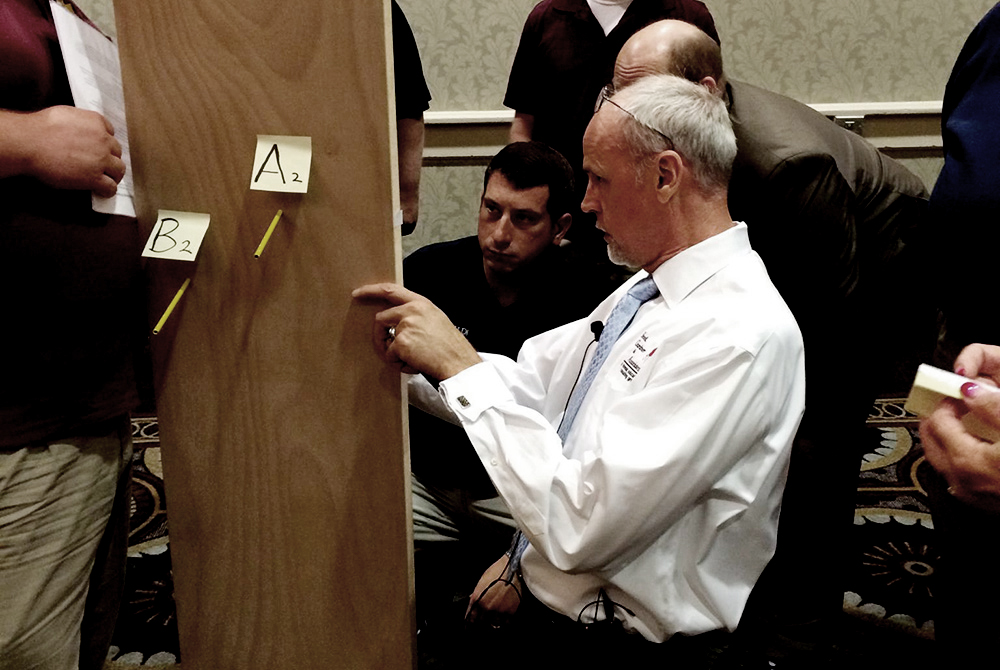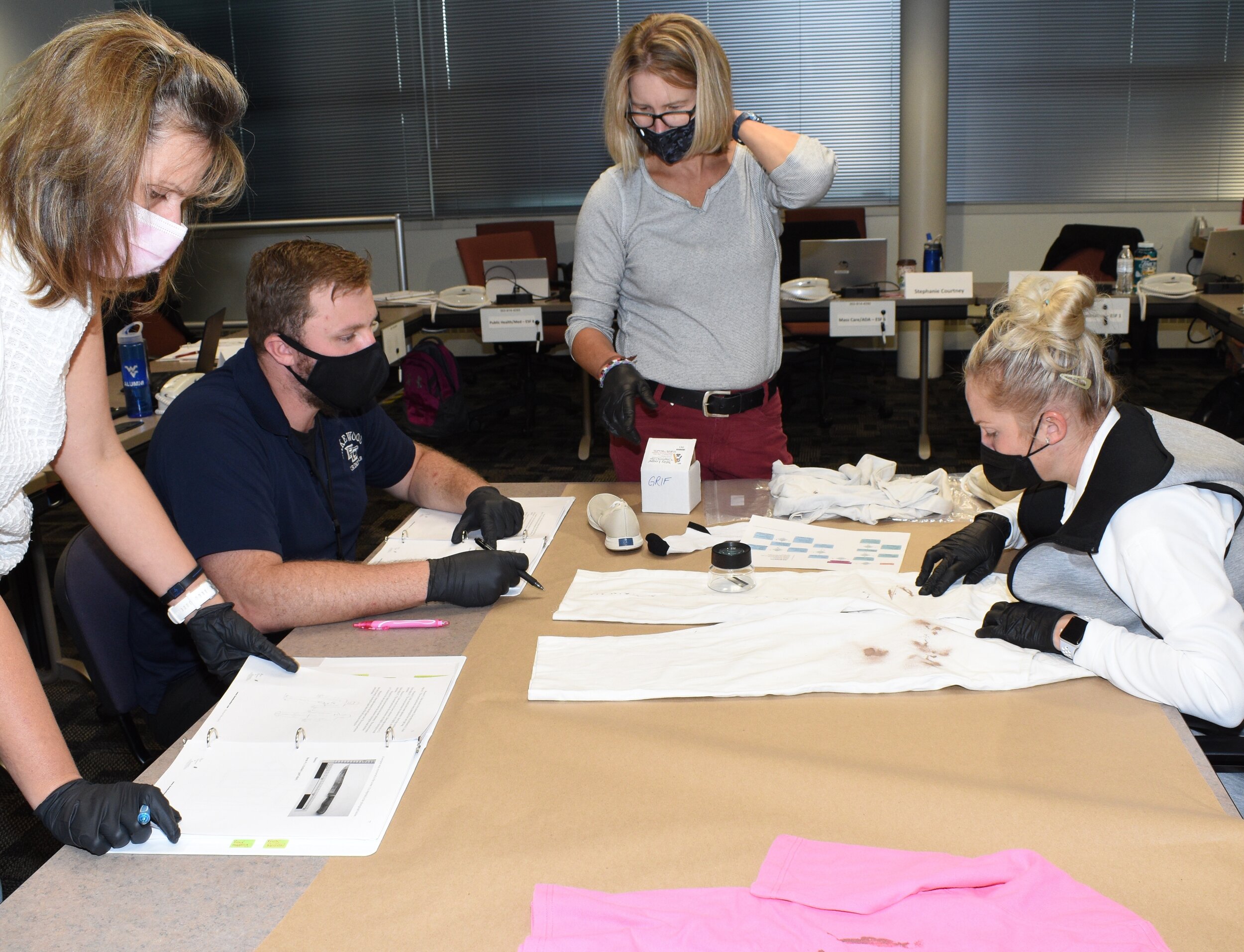Crime Scene Reconstruction I hosted by the Wheat Ridge Police Department
Oct 4, 2021 – Oct 8, 2021 - Wheat Ridge, Colorado
Instructors: Jonathyn Priest & Tom "Grif" Griffin
The examination of crime scenes using a methodical approach, in an attempt to capture as much physical evidence, in as pristine and usable condition as possible. The techniques described in this class are recognized by an international organization of crime scene investigators and forensic scientists to be a standard approach to crime scene investigation.
A course of instruction designed for investigators, crime scene technicians, forensic technicians, and others involved in criminal and medical-legal investigations and crime scene analysis. The course is intended to develop a fundamental knowledge of appropriate hypothesis development and testing procedures and provide an objective form of defining the events associated with a complex crime (Event Analysis). The course syllabus is not intended to create an “instant” expert. This course is not a crime scene processing course.
Objectives:
Demonstrate knowledge of the development, history and advancement of crime scene analysis.
Identify the steps of scientific method.
Identify the seven steps of the methodology used in crime scene analysis.
Demonstrate the ability to develop a hypothesis in a written format and set an objective foundation for any ultimate conclusion.
Demonstrate the ability to objectively flow chart an incident, distinguishing relative chronology from absolute chronology.
Demonstrate an ability to evaluate a complex crime scene.
Death Investigation Training Seminar hosted by the Loveland Police Department
Oct 11, 2021 – Oct 14, 2021 - Loveland, Colorado
Instructor: Jonathyn Priest
This course of instruction is designed for investigators, crime scene technicians, forensic technicians, medical examiners investigator’s, coroner’s and others involved in death scene examinations and medico-legal investigations of death. The course is intended to develop the knowledge, procedures and techniques employed in documenting and processing death scenes. This includes searching for and recovering human remains.
This course provides the experienced detective or crime scene investigator with the skills necessary to thoroughly process and analyze a death scene. This course focuses on the procedures, practices and methodologies performed at the death scene to ensure the scene is appropriately documented and processed. The relationship of evidence in context to determine investigative direction and develop investigative leads is emphasized.
Students are taught to recognize and properly document the unique attributes of a death scene. Through a series of classes, laboratories and practical exercises, students will learn to interpret the dynamic relationship between the scene, evidence, and victim(s) injuries.
Practical Crime Scene Processing and Investigation hosted by the Mesa County Sheriff's Office
Nov 1, 2021 – Nov 5, 2021 - Grand Junction, Colorado
Instructors: Ross M. Gardner & Tom “Grif” Griffin
The evaluation of physical evidence and its context in a scene in an attempt to define objective actions that occurred during an incident. Event analysis is recognized as one of the most effective techniques for modern crime scene analysis, and is taught thoroughly in these classes.
The course is intended to develop a fundamental knowledge of crime scene processing technique. The course will illustrate to the student the six basic activities of crime scene processing and the sequence of those activities. The course concentrates on these core concepts: assessing, observing, documenting, searching and collecting, but also includes lectures on advanced techniques such as alternate light source utilization, bloodstain pattern recognition and trajectory analysis. It will introduce the student to the function and role of crime scene analysis.
Objectives:
Demonstrate knowledge of the six basic activities involved in crime scene processing and the general order of these activities.
Recognize the general categories of physical evidence, what a crime laboratory can do with this evidence and accepted methods of recovery.
Demonstrate knowledge of the critical aspects of assessing a crime scene, including scene containment, crime scene team composition considerations, choosing the most effective crime scene search technique and scene hazard identification and mitigation.
Describe the different scene mapping methods.
Describe the three basic photographs utilized for crime scene documentation.
Describe and demonstrate the basic elements of crime scene narratives.
Recognize basic bloodstain patterns.
Discuss the function, theory and application of an alternative light source in crime scene processing.
Recognize the affect of effective crime scene documentation on crime scene analysis.
Describe basic methodologies of crime scene analysis.
To host a BGA course, the hosting agency must agree to market and coordinate registration in order to meet minimum class size of 14 paying students. For their effort the hosting agency receives as compensation, the following:
If the hosting agency achieves the 14 paying-student minimum, the hosting agency will receive one free tuition.
If the hosting agency achieves 18 -paying-students, the hosting agency will receive a total of two free tuitions.
If the hosting agency achieves 21 paying-students, the hosting agency will receive a total of three free tuitions.
The hosting agency must:
Provide an adequate training facility to house twenty-four students, with moveable chairs and tables.
Provide additional space for the set up of scenarios (depending upon the class).
The training area must have available electrical outlets, extension cords, a screen or an appropriate projection wall.
Provide access to a copier for occasional handouts as required. Manuals and primary handouts are the responsibility of BGA, but as the class proceeds there are always minimal additional copying requirements.
Assist BGA in locating adequate room and board; however BGA is responsible for all associated travel and boarding costs for instructors.
Provide a shipping address, and be willing to accept deliveries in advance of the class, holding all supplies until required for class.
*The hosting agency is allowed to charge a small additional fee for refreshments if they desire.
Interested in hosting a BGA course?
Contact Craig Gravel for more information: 405 706-8489




